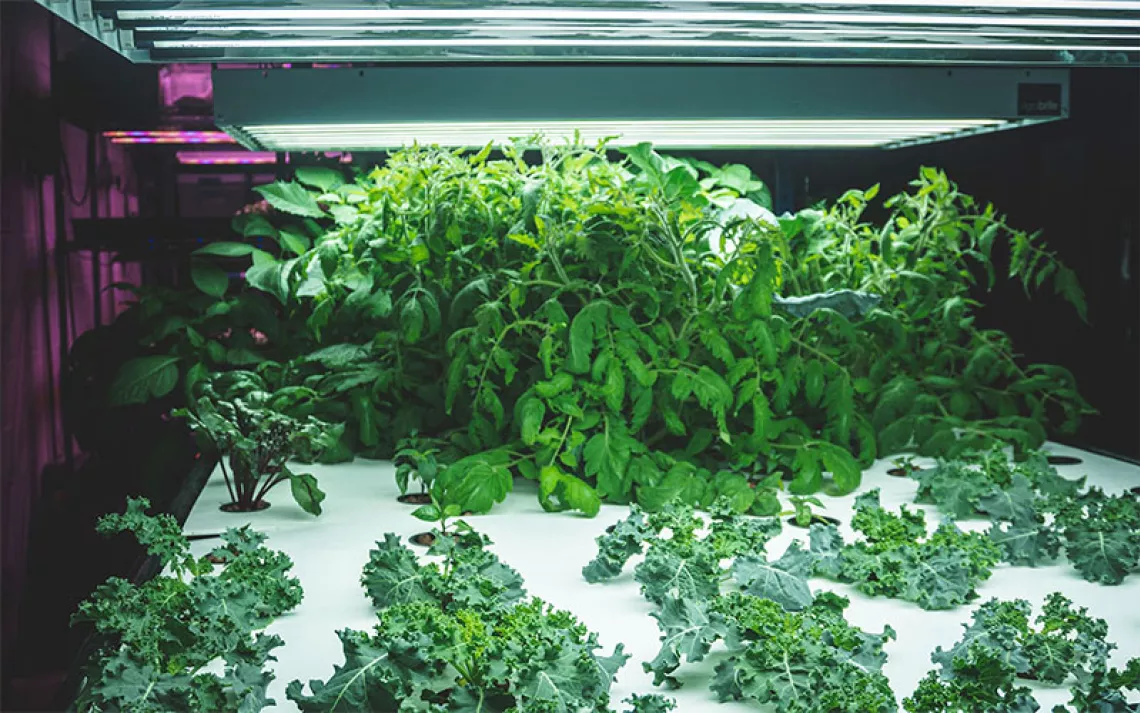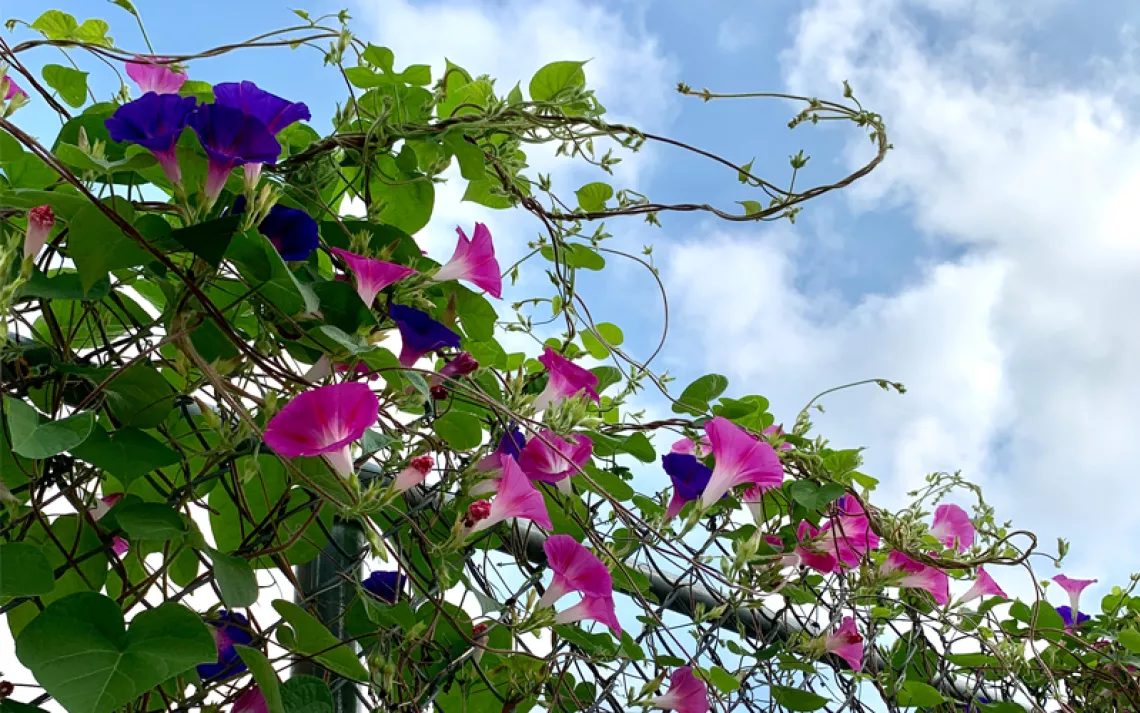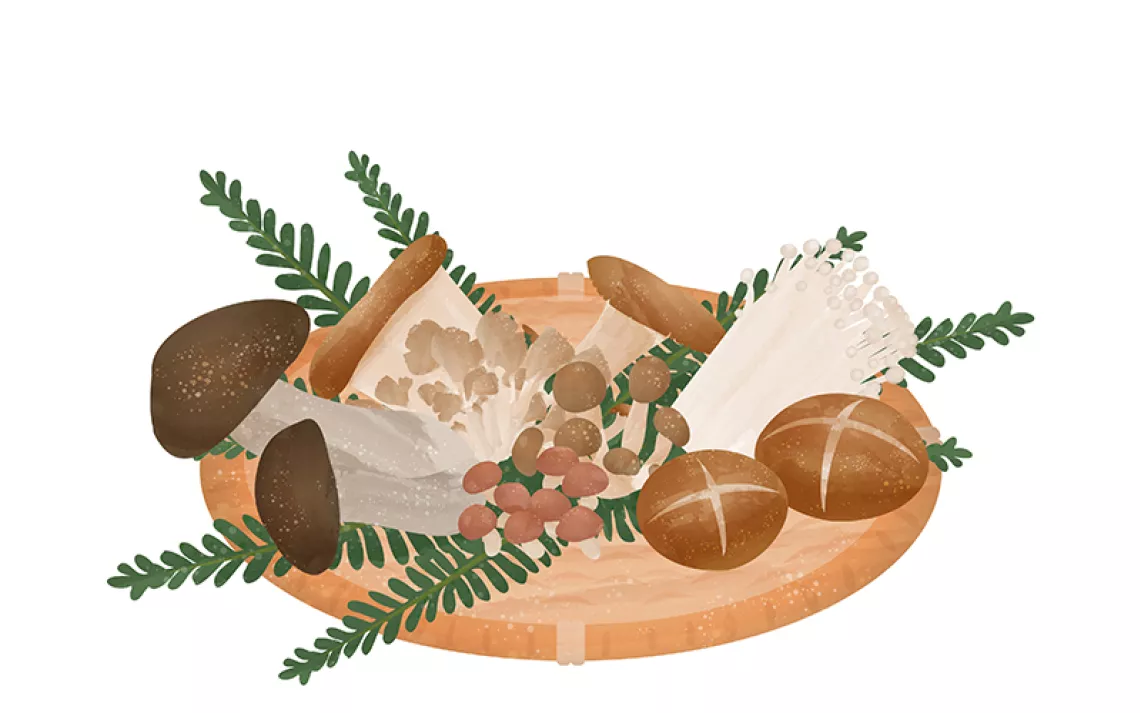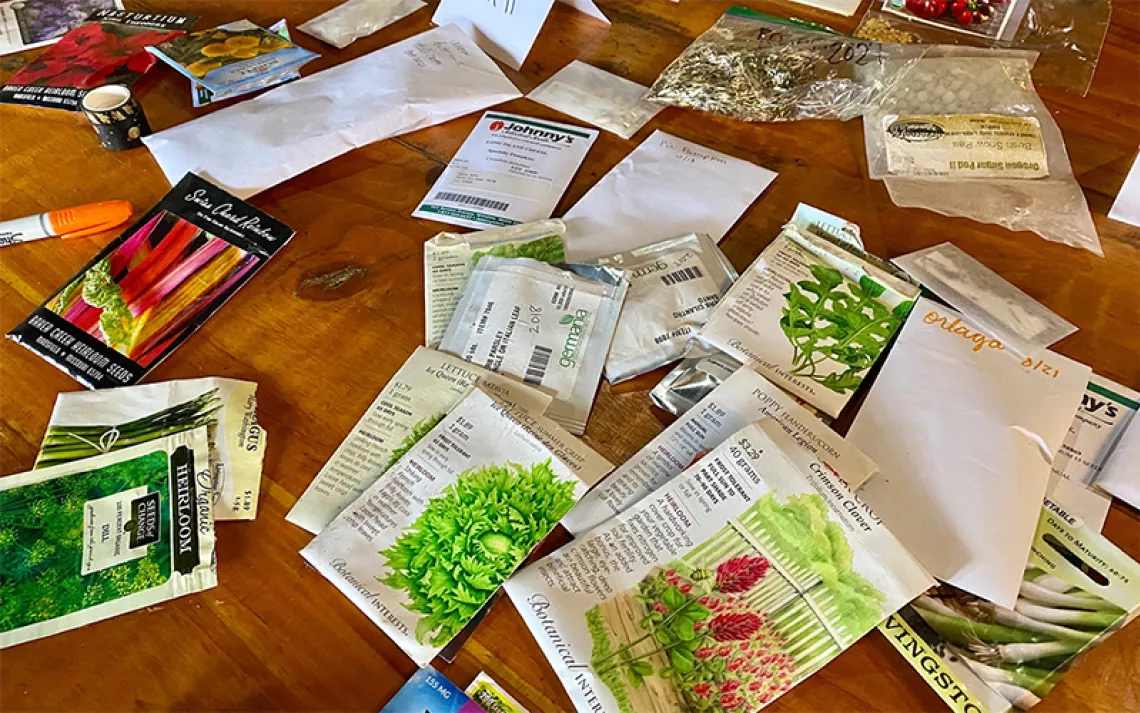5 Steps to a Bee-Friendly Garden
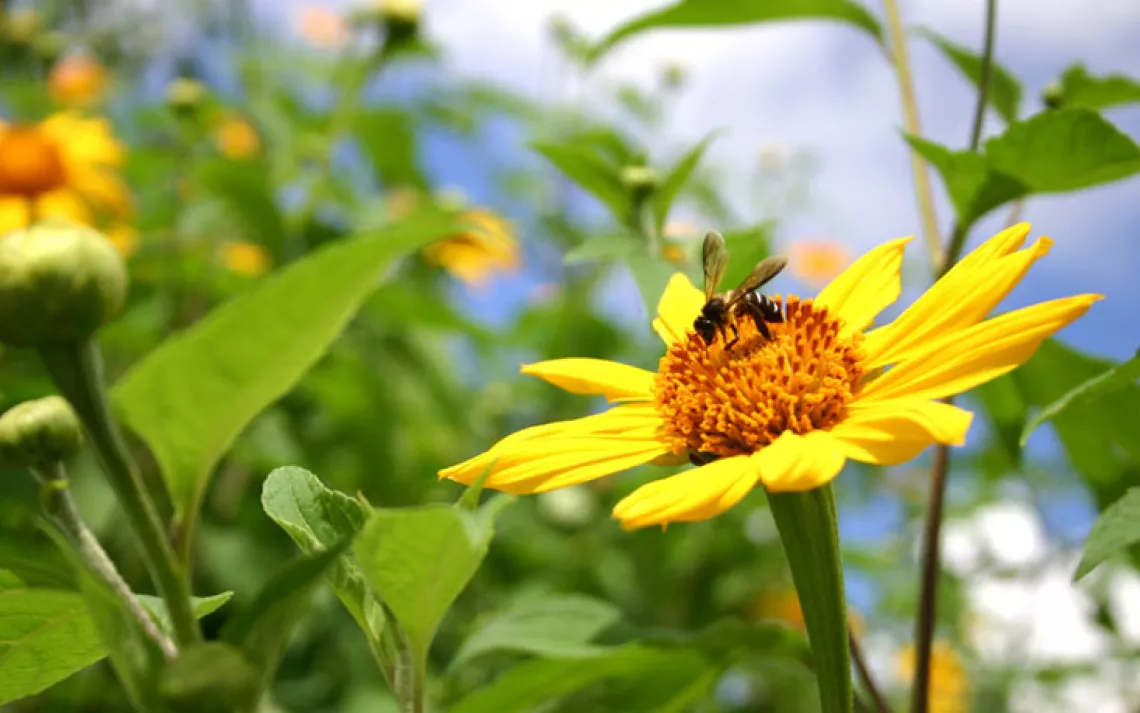
Bugged by aphids in your garden? Spray them with garlic oil. Overrun by slugs? Eggshells will do the trick. Most experienced gardeners know the ins and outs of pest control, and avoid using conventional insecticides that can be toxic to the wildlife in their gardens. But even the environmentally aware may have been caught off guard by the recent news that supposedly bee-friendly plants purchased at big-name hardware stores can come pre-treated with chemicals believed to be fatal to bees. As more and more research linking colony collapse disorder to pesticides use comes out, it's more important than ever to look out for the bees in our own backyards. Here are some tips for keeping your garden bee-safe:
1. Know your plants. Choose what to grow based on your local environment and begin to prevent infestation even before you plant. Research which plants fare best in your area and in soil conditions, and carefully monitor plant health so you'll recognize signs of infestation later on.
2. Buy organic. Begin with untreated seeds or organic plant starts, and plant them in organic soil. Ask around for a trusted neighborhood nursery or seek out suppliers who have demonstrated a commitment to growing organic. Keep an eye out for providers who've signed the Safe Seed Pledge.
3. Know your pest. Learning to recognize your pests is an essential first step in eco-friendly gardening, as you can target your attention on the uninvited guests and keep your essential predators safe. To get a closer look at what you're dealing with, post sticky cards in your garden to trap a few of your pests.
4. Be pesticide-free. "In a backyard situation, pest insect problems hardly ever become so overwhelming that a pesticide is required," says Dr. Eric Mussen, UC Davis apiculturist and honey bee expert. "There normally is some physical way to detach the insects from the plants — picking, dousing with a hose, etc. We have simply become too used to squirting our problems away with toxic chemicals." The internet is full of safe and chemical-free solutions, from using organic items that naturally repel certain insects to planting trap crops to lure pests away from the threatened plant.
5. Know your natural predators. It pays to know who's on your side. Most people know ladybugs can be counted on to take out aphids, but plenty of bugs have a whole host of enemies out to get them. Parasitic natural predators contribute a lot to pest management, says Dr. Andrew Sutherland, Urban Integrated Pest Management advisor to the San Francisco Bay Area. In the right numbers and conditions, insects like lacewings and parasitic wasps can provide great pest control, but only if you provide them the resources they need to survive. Make sure your garden has enough flowers to keep your pollinators happy and healthy, recommends Dr. Sutherland, and you'll have a tiny pest-control army.
 The Magazine of The Sierra Club
The Magazine of The Sierra Club
